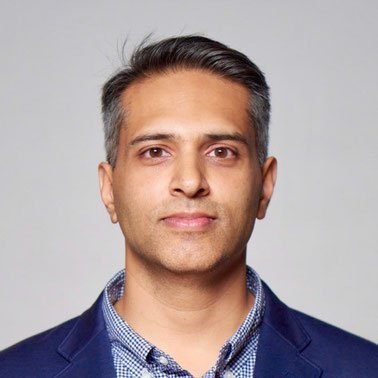To give a short personal impression: let us know what are your top 3 books everyone today needs to read and top 3 tech gadgets one needs to have?
Books
- Principles by Ray Dalio (available in Germany, in the US, in the UK, in France, in Italy and in Spain).
- Sapiens by Yuval Harari (available in Germany, in the US, in the UK, in France, in Italy and in Spain).
- Children of Time by Adrian Tchaikovsky (available in Germany, in the US, in the UK, in France, in Italy and in Spain).
Tech Gadgets
I’m a pretty simple guy, so a reliable smartphone with good battery, a nice light MacBook Pro (available in Germany, in the US, in the UK, in France, in Italy and in Spain), and a solid note-taking app like Evernote are all I need.
I believe there is still a lot of confusion concerning blockchain. Maybe you can help: If my 6-year-old niece would ask me, “what is blockchain” how should I explain it to her?
It’s a way for us to know the truth, without having to ask and believe someone. We know who’s doing what without asking them..
Tell us a little more about the use cases in your region that excite you?
Blockchain and digital assets (crypto-tokens) have the potential to re-shape healthcare, financial services and other sectors. When a blockchain stores data, parties can trust each other without an intermediary. This means less risk of fraud, exclusion, breaches and errors in health records, credit histories, land titles and even identities.
What do you think about the current status and future trajectory of technological digitalization within the finance blockchain?
Today most media coverage either focuses on the low bitcoin/ethereum prices, or on the shortcomings of the technology — how much energy it uses, how it’s being used by scammers, criminals etc. As usual with the media, the positive and inspiration stories don’t make the headlines. But I’m very bullish about how much blockchain will change finance. In my particular niche, it can do for lending what VISA or SWIFT have done for payments, without a central decision-maker.
Among the advanced technologies that continuously emerging, which one are you excited about and which excites you most?
It’s all exciting — flying cars, robotics, genetic engineering, AI. By the time my kids are adults it’ll be like science fiction. But I spend more time reading and thinking about how we need to adapt as a society. There is way too much effort going into inventing, and not enough effort going into adapting / educating. Look at the environment. We invented technologies to make life better that plundered the earth’s resources and no-one gave enough thought to the long-term impact. For all these new exciting technologies, it’s key we do better and learn from our lessons. We need to consider the long-term impacts. That’s where the emphasis should be, and not so much on how exciting they are.
Please tell us more about your platform LendLedger, your goals and current achievements in solving the lack of credibility for financing.
LendLedger is the first decentralized network that enables more efficient, affordable, and inclusive lending in emerging markets where most borrowers do not have a credit history. We started building LendLedger because of our experience running Happy Loans, a licensed digital lending business and platform in India. At Happy, we were able to source financial data on small businesses by building relationships with digital service providers, including the country’s largest mobile wallet, largest independent point-of-sale, and major money transfer and rural commerce networks.
We’ve been very successful – 22,000 loans made in 400+ cities in just 18 months, and on track for $30 million in loans in the next 12 months at the current daily rate. But I realized that this is still too small to meet the $8 trillion global MSME finance demand. So LendLedger is an open global network that can solve that. Since any data source and any lender can join, and do business without any gatekeeper or intermediary, a lot more lending can happen. LendLedger will be live before the end of 2018.
You are preparing a token pre-sale. Due to a lot of scams ICOs and token sales have received a bad image. How do you make sure, that Lendledger is not perceived as a scam?
I think our long experience in the sector, and the fact that we run a licensed lender already, gives us a lot of credibility. We also have excellent advisors, including Nick Hughes, the founder of the world’s first large mobile payments network (M-PESA), and Alex Mashinsky, the inventor of VOIP and the founder of Celsius. LendLedger also associates with legitimate, major global efforts. For instance we are a founding signatory of the Declaration on Responsible Digital Financial Services, promoted by several European governments.
How can people differentiate between a scam and a proper token sale?
Read the website and papers carefully. It’s easy to identify a scam, or a project that is mostly hot air, because you can’t explain what they’re doing even if you read the materials again and again. In our case, we’ve spent a year thinking through every aspect of LendLedger, and invested many many days to simplify our communications about it. We continuously work on this so everyone can understand what we do.
How did you incorporate your platform to #finance #blockchain? What is your current standing and how the chain responded to your initiatives?
We are unusual in that we are taking an existing set of lending processes, and decentralizing them. Because we already have 18 months of history as a lender working with over 20 data providers, we know which steps we can modify, standardize, and how data providers will likely adapt. So far, we’ve had great interest and support from the teams at Stellar and more recently other blockchain networks (EOS, Zilliqa etc) to work with us.
What is your forecast for #microlending in the finance blockchain for the next 5 years and 10 years?
We don’t have a crystal ball, and right now we are focused on what decentralization can do for the informal sector and microfinance space. However, we’re bullish on the impact blockchain tech can have in these realms and the benefits that will accrue to the global economy.
Let’s have a look at traditional companies, how do you estimate the state of the digital transformation right now? Any strategic advice you can share that would flip everything for their business.
I’d recommend large traditional companies think heavily about how they can be disintermediated, because that’s what blockchain technology can do. It can allow parties in an industry to trust each other, removing the need for trusted middlemen.
What would you recommend to young people that start their career today? Also, for those common individuals who want to start microfinancing and how they can be more involved in the blockchain.
If I was a young person today I’d try to work on the cutting edge – artificial intelligence, blockchain and crypto assets, or bio-engineering. One of my goals is to help society figure out how it is going to successfully mainstream these technologies without turning to the “dark side” where genetic engineering, artificial intelligence, robotics and other innovations change what it means to make our own decisions and be fulfilled as humans.
Maybe you want to share some shout-outs to people who influenced you as a leader and those who you look up to in the finance blockchain.
The blockchain / crypto space is new, and I’m more a businessperson than a technologist. So my mentors are folks from the mainstream finance world who have struggled for decades to make it more inclusive. I’ve learned an immense amount that I’m now applying to LendLedger, from people like Nick Hughes, Bob Christen, Elizabeth Littlefield, Martin Holtmann, Ignacio Mas and my business partners including Manish Khera.
Biography:
I’m the co-founder and CEO of LendLedger. It’s a network that connects lenders with data providers, so that they can access the information needed to lend to 200 million small businesses globally who lack $8 trillion in loans. LendLedger is totally open and decentralized, which means that any data provider, lender, or borrower can connect to it. I’ve been in digital or inclusive finance since 2002, with prior experience on Wall Street, the World Bank Group, and as an Internet entrepreneur in the good old days. But my real passion for over 15 years has been figuring out how we can use technology to bring billions of people reliable and affordable savings and loans. I’ve been part of exciting organizations and programs such as (SKS Microfinance – IPO 2010), Jipange Kusave, the CGAP Technology Program funded by the Gates Foundation, Signal Point Partners, and most recently Happy Loans in India. I live in NYC with my wife, who’s a physician, and my 3 boys, and I’m a huge soccer fan and amateur pianist.
Thanks Gautam Ivatury!








